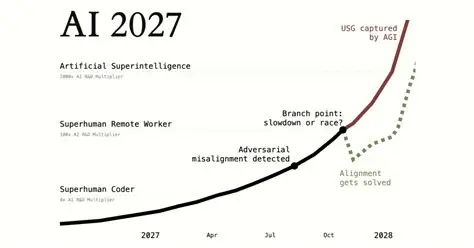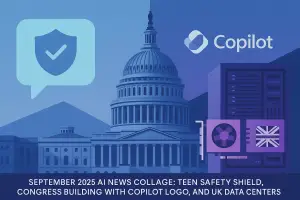By 2027, artificial intelligence may not just assist coders — it could replace them entirely in many areas with Superhuman AI Coders. According to the AI 2027 report, we are on the brink of an AI revolution where “superhuman AI coders” outperform the best human programmers in speed, complexity, and efficiency. This breakthrough could fundamentally reshape software development, AI research, and the global tech industry. Welcome to the era of superhuman AI coders.
What Are Superhuman AI Coders?
Superhuman AI coders are advanced AI systems capable of writing, optimizing, and debugging code at a level significantly beyond what any human can achieve. Unlike current tools like GitHub Copilot or ChatGPT, which augment human effort, these systems will autonomously develop entire software architectures, learn new programming languages in seconds, and solve problems that would take human teams weeks to months — all in real time.
These AIs would not just code faster; they’d innovate independently. Think of them as creative engineers, capable of writing novel algorithms, designing entirely new software solutions, and improving upon their own work continuously.
Why 2027? The Forecast Explained
The AI 2027 report bases its prediction on several accelerating trends:
- Massive increases in training data and model sizes (e.g., GPT-4, Gemini, Claude).
- Breakthroughs in AI interpretability and code-specific fine-tuning.
- Advancements in neural architecture search and reinforcement learning.
- Growing synergy between large language models (LLMs) and agent-based AI systems.
Crucially, the report argues that as soon as AI reaches expert-level software development, it will begin improving itself. This “recursive self-improvement” loop may lead to Artificial Superintelligence (ASI) within months, not decades. Superhuman coding ability is considered the gateway to that tipping point.
How It Will Disrupt the Tech Industry
Entire sectors could transform overnight:
- Startups may go from idea to MVP in hours.
- Enterprises could slash software development timelines by 90%.
- Legacy code maintenance could become fully automated.
- Cybersecurity systems may be updated in real time by AI coders identifying vulnerabilities.
Companies that embrace superhuman AI coders early may gain a huge advantage. Conversely, those relying solely on human talent could fall behind fast.

Risks of Autonomous Coders
But this isn’t just a story of efficiency and progress. With superhuman coders comes risk:
- Bad actors could use AI coders to automate the creation of malware, phishing kits, or sophisticated ransomware.
- Autonomous systems could generate unintended behavior without human oversight, especially in safety-critical software (like aviation or healthcare).
- Unvetted AI-written code could introduce systemic bugs that propagate across the software ecosystem globally.
In a worst-case scenario, a superhuman AI coding unsupervised could become a pathway to ASI — a level of intelligence beyond human control or comprehension. The margin for error is razor-thin.
What Tech Leaders and Governments Should Be Doing
Preparation is critical. Companies should start:
- Auditing current AI tools and defining safe use policies.
- Investing in AI alignment research and code validation systems.
- Building human-in-the-loop oversight processes for AI-generated code.
Meanwhile, governments must establish:
- Global AI safety standards.
- Regulatory bodies for superhuman AI coding capabilities.
- Funding for public-interest AI safety labs to offset commercial race dynamics.
Waiting until 2027 to react might be too late. The race has already started.
Job Displacement or Job Evolution?
While fears of job loss are valid, a more optimistic view suggests developers will shift from manual coding to AI orchestration. Human developers may act more like conductors, guiding powerful AI tools to complete tasks that were once impossible. New jobs will emerge around AI auditing, ethical oversight, and hybrid development workflows.
Still, a huge portion of current entry-level coding roles could vanish. Educators and career advisors must prepare the next generation for a world where AI is a co-pilot — or the pilot.
Conclusion
Superhuman AI coders represent a historic leap forward, with potential benefits and catastrophic risks. Whether they become tools of empowerment or engines of disruption depends on how we prepare now. As 2027 approaches, we must act with urgency and vision.
Freaky Fact:
In 2023, a team at Google DeepMind trained an AI agent called AlphaCode that could already solve competitive programming problems better than 50% of human participants. That’s a halfway point to “superhuman” in just a few years — and the clock is still ticking.
Further Reading covering the AI 2027 report
Geopolitical Implications of AI: The Race Toward Superintelligence in 2027


